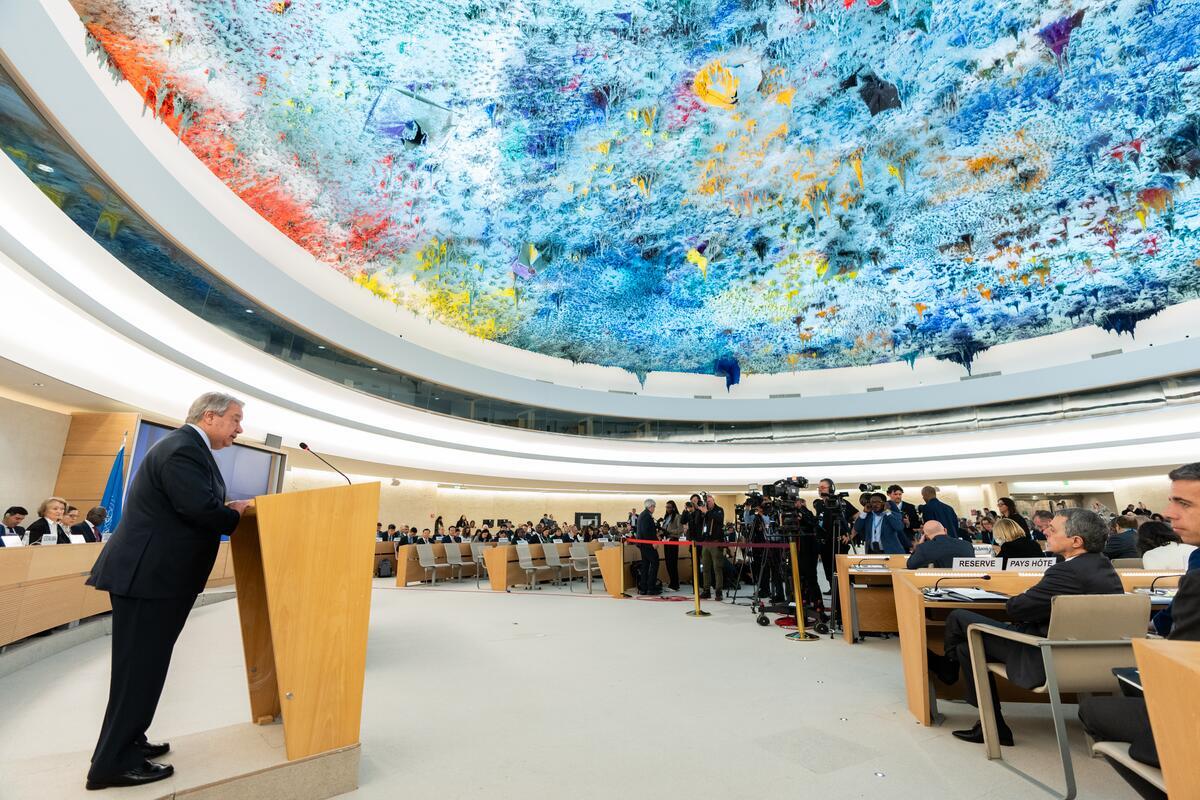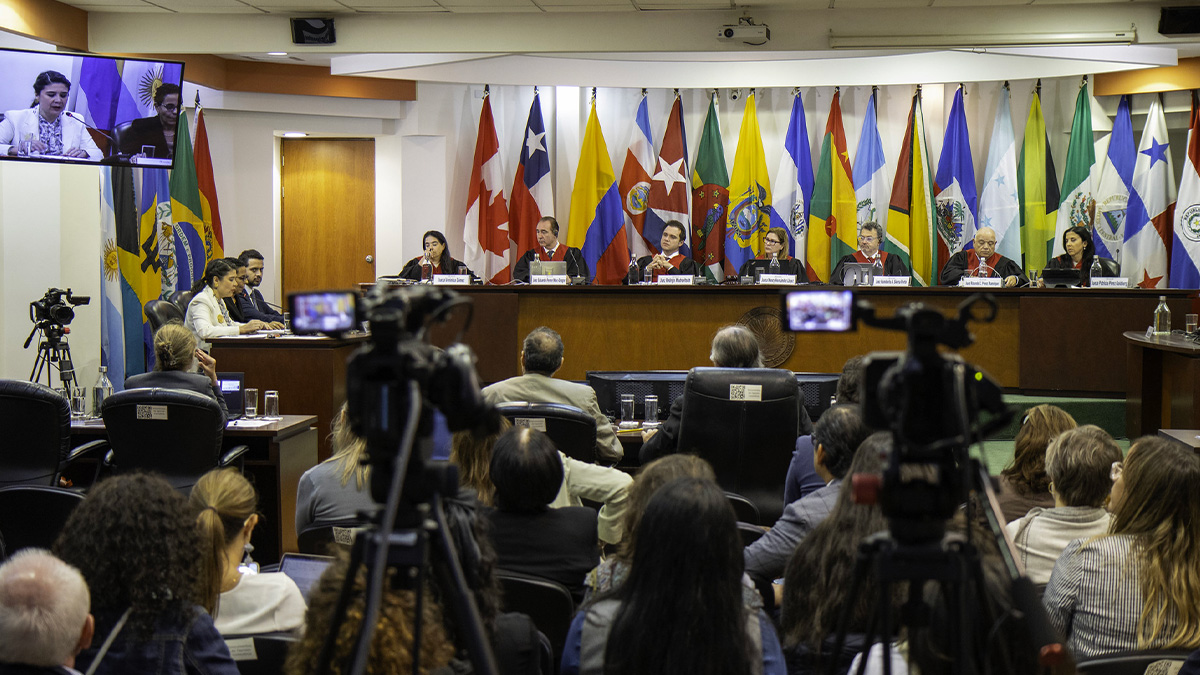Article disponible en français ici.
Lea este artículo en español aquí.
By Maina Kiai, United Nations Special Rapporteur on the rights to freedom of peaceful assembly and of association
Here’s a hypothetical scenario for global entrepreneurs in 2015: Let’s imagine you’re an aspiring businessperson just starting a company – perhaps a hotel – in the fictional country of New Yorkistan.
You start by registering your new business. Sound simple? Not so fast: local government officials tell you they can’t help. Registration requires an act of the National Assembly. No connections? You’re out of luck.
But let’s say you convince the authorities to register your company. They just have one condition: You can’t work in the same industry as any other existing business.
Sorry, New Yorkistan already has another hotel. You’re out of luck again.
And for the sake of argument, let’s say you’re the first hotel in New Yorkistan and you get operations underway. But the country is small and you soon realize you’ll need foreign investment to boost your capacity.
“Sure,” the government tells you. “But New Yorkistan limits foreign investment in hotel companies to 10% of their annual operating budgets – so keep it small.”
Sound crazy? It should. These days, no government in their right mind would restrict businesses to this extent.
Unfortunately these regulations are all too real – they are the law of the land in Nicaragua, Oman and Ethiopia respectively. The catch: they apply only to civil society organisations, such as non-governmental associations, charities, and non-profit associations (or in the case of the Ethiopia regulation, only associations which work on certain human rights issues). Businesses are allowed much more room to operate.
While regulations similar to those above may have applied to businesses years ago, the trend is different today: Governments everywhere are bending over backwards to create the best possible enabling environment for commerce. But many are going in the opposite direction with the enabling environment for civil society.
Why the difference in treatment? That’s the question I ask in my new report to the United Nations General Assembly, which I presented in October 2015. And I cite dozens more examples where civil society gets the short stick.
In Malaysia, for example, certain associations can be dissolved when the head regulator decides; only “his opinion” matters. Dissolving a business requires a court order.
In Rwanda, a business entity can be registered online in a matter of hours at zero cost. Registering an NGO can take several months, and the process is subject to extensive government discretion. Foreign NGOs also face a 20 percent limit on overheads. Can you imagine applying that rule to Microsoft or Shell?
You can also look at how much attention governments give each sector. A whopping 40 heads of state attended the last Davos Summit. None came for the 2015 editions of the CIVICUS World Assembly and International Center for Not-for-Profit Law’s Global Forum, which are comparable civil society events.
The point in highlighting these examples is not to argue that it’s wrong when States create environments designed to help businesses to succeed. Rather, the question is why can’t States do the same for civil society?
A cynic might say the answer is fairly plain. One sector offers the promise of growth, development, and (in an unfortunate number of cases) cash in the pockets of officials. The other offers the prospect of unrelenting public criticism and is perceived to be a threat to power. Which is perhaps why critical for-profit media faces similar challenges as critical civil society. Favoring one sector over another seems like an easy call for governments these days. But is it the right one?
Obviously it’s not from an international human rights law perspective. International law protects the rights to freedom of peaceful assembly and of association for exactly this purpose. Governments might not always be comfortable when citizens organise and become vocal, but preserving people’s ability to do so is essential in a democracy.
But it’s not the right call from a business perspective either.
When civil society is vibrant, rule of law is stronger, transparency is greater, and markets are less tainted by corruption. The presence of critical civil society can be viewed as a barometer of a State’s confidence and stability – important factors for businesses looking to invest their money.
In fact, in researching this report, I found that the presence of a robust and vocal civil society sector, without exception, guarantees that a State also possesses a good business environment. In other words, there is a significant convergence of interests: when civil society does well, business does well too.
This isn’t to say that businesses and civil society should be treated equally in every respect. They have their differences. Instead, I advocate “sectoral equity” – a fair, transparent and impartial approach where regulation of each sector is grounded in international law and standards, and not guided by money, power or the whims of officials.
This is an approach that works for both sectors because it’s grounded in shared principles: rule of law over rule of power, predictability over disorder, fairness over corruption. Stable, balanced environments that tolerate dissent are better for everyone, whether you’re a multinational corporation or a grassroots activist collective.
I view sectoral equity as a kind of stimulus plan for civil society and businesses alike: Elevating the treatment of the former would yield significant economic, social and political dividends for everyone. And the best part about it is that it would cost States virtually nothing. It only takes political will. It’s time for businesses and civil society to work together towards this goal.
Maina Kiai is the United Nations Special Rapporteur on the rights to freedom of peaceful assembly and of association




